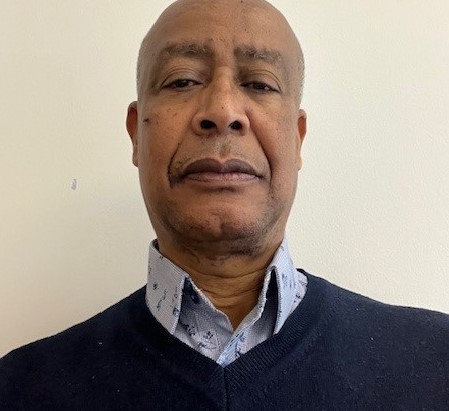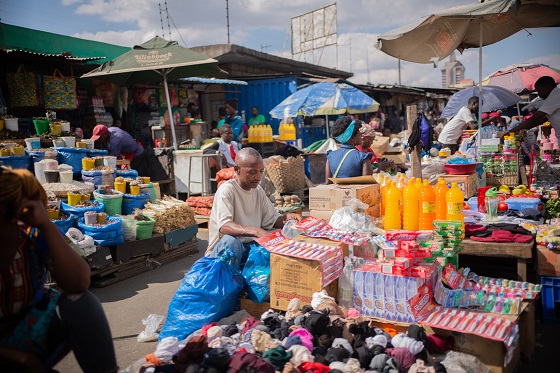Growing up in a poor rural area of Ethiopia and seeing the chasm between rich and poor in East Africa is driving a De Montfort University Leicester (DMU) academic’s efforts to encourage more women to become entrepreneurs.
Kassa Woldesenbet Beta, Professor of Inclusive Entrepreneurship at DMU, is already running a project to help small and medium-sized enterprises (SMEs) in Leicester procure goods and services from large local businesses and public services to help boost the economy.

Professor Kassa is sharing his research at a symposium this week
While a project to help SMEs draft bids for new business has helped 220 local businesses so far.
Now Professor Kassa is looking toward Ethiopia and Zambia to see how his research into inclusivity can help more women become entrepreneurs.
Droughts in Zambia have led to crop failures, food and water shortages, livestock deaths and reduced economic growth while Ethiopia is suffering from the fall-out of ongoing conflict and natural disasters.
At the same time, despite women moving towards a more equal society in these countries, there is still a perception that women need to take care of children and the home while owning land or property can still be difficult for women.
Professor Kassa has noted in his research that ‘gender disparities persist in accessing entrepreneurial opportunities, perpetuating inequalities and hindering sustainable development’.
Professor Kassa believes that empowering women to become entrepreneurs can bring about change, creating more opportunities for 50 per cent of the population and provide a massive boost to the Ethiopian and Zambian economies.
Prof Kassa said: “How can we support these women and help them to take up opportunities to become entrepreneurs?

A view of Ethiopian capital city Addis Ababa
“Many women are starting from nothing because they have been displaced by drought or conflict. So, what kind of resources can we provide and develop to create opportunities for them to thrive.
“We need to look at how we break through barriers such as discrimination, religion and cultural standing that stop women from being empowered.”
Professor Kassa has carried out an initial study and is preparing to present one of the papers to an international Research Symposium on Inclusive Entrepreneurship which takes place at DMU today.
He has identified what has previously been said on women entrepreneurs in Africa and made recommendations on the next steps. Prof Kassa plans to visit both Ethiopia and Zambia in April this year and engage with people there in order to pool resources, share knowledge and co-create solutions tailored to specific challenges women face.

A market in the Zambian capital of Lusaka
He says his determination to improve the opportunities for women entrepreneurs harks back to his upbringing.
Prof Kassa, who is married with two daughters and a son, explained: “I think my upbringing is definitely a factor. I was born in a rural area of Ethiopia but I moved to the city to continue with my studies.
“It was then that I became aware of the disparity between the rich and the poor. I studied economics and I became very interested in equality of opportunity.
“The motivation for me is looking at the broader structural problems that need to be addressed. When I engage with small businesses, I get a deep understanding in how these people work.
“They are contributing significantly to society and creating opportunities for many other people. If these people are supported with access to resources we are going to have a far better society.
“If we make business and entrepreneurship as inclusive as possible, and create opportunities for marginalised people we move towards a fairer and more equitable society.
“With my research I want to try and understand how this can happen, then I can inform policy and practise in these countries.”
As he was raised in Ethiopia, Prof Kassa has stressed his future research must challenge the taken-for-granted assumptions of western culture.
In his paper, Prof Kassa says: “Many studies’ findings portray women in Africa as necessity-driven, poor, mediocre, and subordinate and as such they require empowerment in line with the Western feminist views.
“However, less is known and studied about how the African colonial history and, diverse culture and institutions affect women enterprising.
“So, the authors call for an indigenous African approach to study women entrepreneurship considering their history, gender, politics, race, economics, and social dynamics [Ogundipe-Leslie, 2011] to diligently capture the women’s lived experience, voices and narratives, agency, and creativity.”
Anyone interested in attending the conference, which runs today and tomorrow, can find out more here. The two-day event is a mixture of in person and on line discussions.
Posted on Thursday 15 February 2024